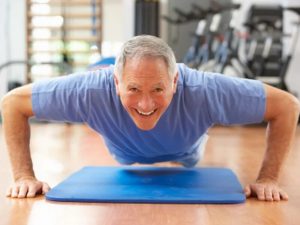Improve Inflammatory and Stress Responses with Yoga
By John M. de Castro, Ph.D.
“yoga could slow the harmful physical effects of stress and inflammaging.” – Harvard Health
The immune system is designed to protect the body from threats like stress, infection, injury, and toxic chemicals. One of its tools is the Inflammatory response. This response works quite well for short-term infections and injuries. But when inflammation is protracted and becomes chronic, it can itself become a threat to health. It can produce autoimmune diseases such as colitis, Chron’s disease, arthritis, heart disease, increased cancer risk, lung disease, sleep disruption, gum disease, decreased bone health, psoriasis, and depression. Indeed, the presence of chronic inflammation is associated with reduced longevity.
So, it is important for health to control the inflammatory response, allowing it to do its job in fighting off infection but reducing its activity when no external threat is apparent. Of course, it is far better to prevent chronic inflammation in the first place than to treat it later. Mind-body techniques such as yoga, Tai Chi and meditation have been shown to adaptively reduce the inflammatory response. The evidence is accumulating. So, it makes sense to step back and summarize what has been learned.
In today’s Research News article “The role of yoga in inflammatory markers. Brain, behavior, & immunity – health.” (See summary below or view the full text of the study at: https://www.ncbi.nlm.nih.gov/pmc/articles/PMC8842003/ ) Estevan and colleagues review and summarize the published research studies of the effects of yoga practice on the inflammatory response.
They report that the published research found that yoga practice reduces the inflammatory response and stress hormones in a wide variety of conditions such a COPD, obesity cancer, and depression. So, the research suggests that yoga practice is an effective treatment to reduce the chronic inflammation.
“Often, the precursor to illness is chronic inflammation. . . . Yoga — of various styles, intensities, and durations — reduced the biochemical markers of inflammation across several chronic conditions.” – Sarah Ezrin
CMCS – Center for Mindfulness and Contemplative Studies
This and other Contemplative Studies posts are also available on Twitter @MindfulResearch
Study Summary
Estevao C. (2022). The role of yoga in inflammatory markers. Brain, behavior, & immunity – health, 20, 100421. https://doi.org/10.1016/j.bbih.2022.100421
Abstract
Yoga is an ancient system for integrating the mind, body, and spirit. In the hatha yoga ashtanga tradition (the eight limb Patanjali Yoga), three of the limbs are meditation, breathwork (pranayama) and physical postures (asana), which are widely practised in yoga classes. The benefits of yoga for mental and physical health are rooted in the practice’s origins: in yoga, stress is said to be the root of all diseases.
The established fields of psychoneuroimmunology and immunopsychiatry study the interplay between the immune system and mood or mental states. This mini-review has shifted the emphasis from research that focuses on yoga’s benefits for stress, the most commonly studied outcome of yoga research, to a summary of the research on the effects of yoga practices on the immune system. The current literature bears strong evidence for the benefits of yoga on the levels of circulating cortisol and classical inflammatory markers, such as C-reactive protein (CRP) and cytokines such as interleukin-1 beta (IL-1β), interleukin 6 (IL-6), tumour necrosis factor-alpha (TNF-α) and interferon-gamma (INF-γ). The evidence for other less studied markers, telomerase activity, β-endorphins, Immunoglobulin A (IgA) and brain-derived neurotrophic factor (BDNF) is also growing. This mini-review centres around the interplay between yoga and these markers in stress management and depression, vascular and immune function in the older population, cardiovascular and metabolic diseases, auto-immune diseases, breast cancer and pregnancy.
Overall, the literature examined reveals the novelty of this field of research and sheds light on methodological challenges; however, it uncovers the potential for yoga to be used as adjuvant therapy in conditions with an inflammatory component.
https://www.ncbi.nlm.nih.gov/pmc/articles/PMC8842003/
